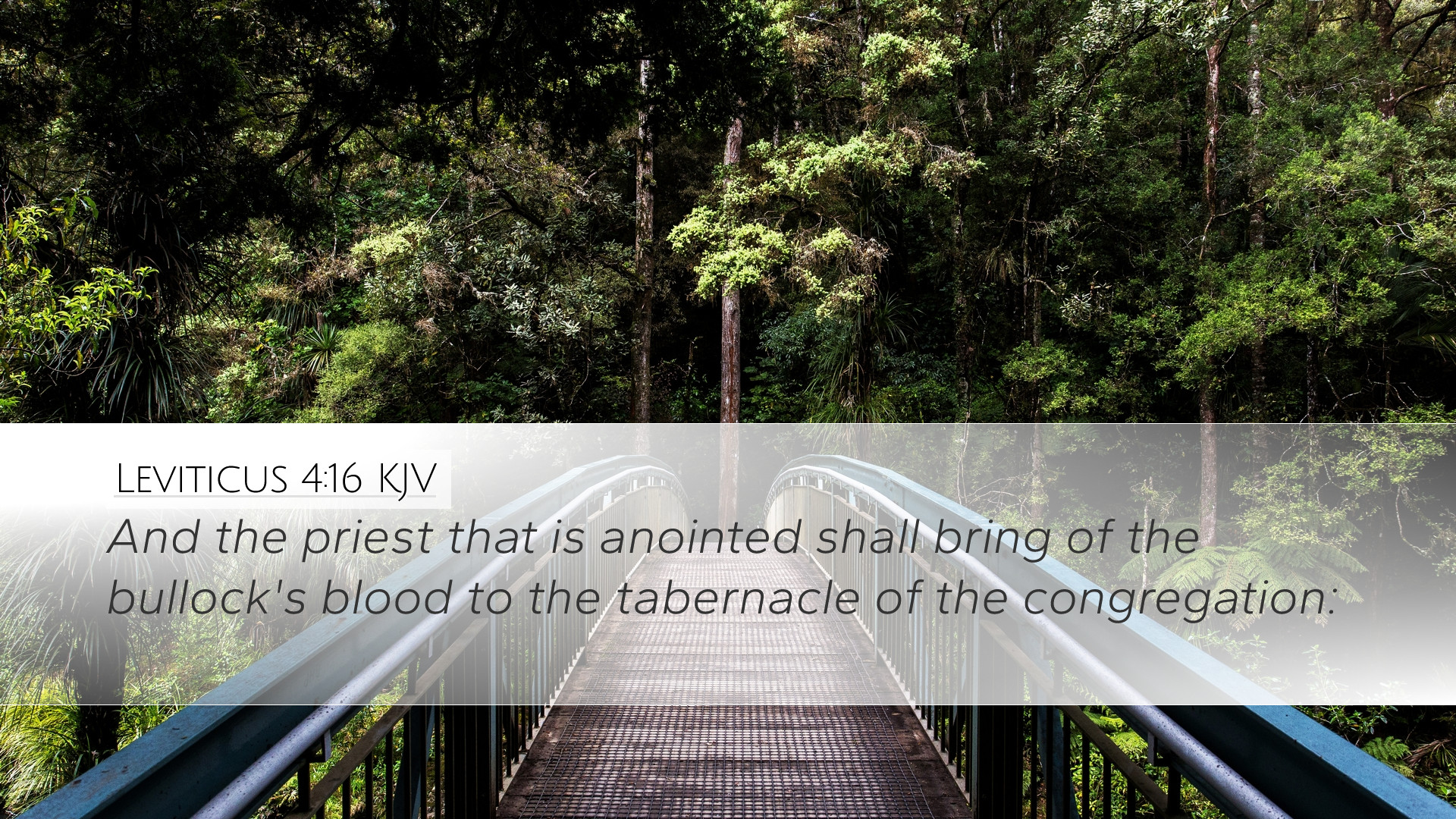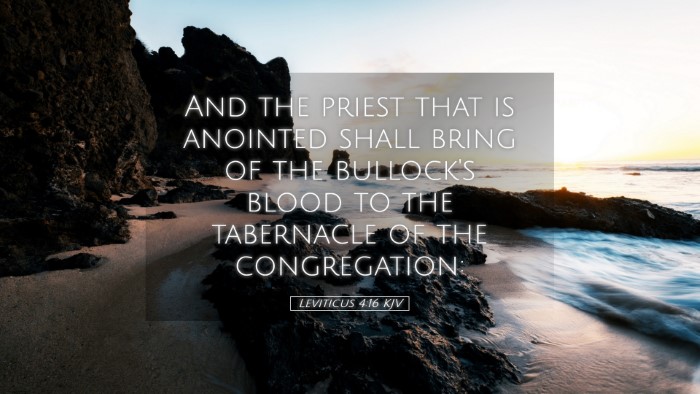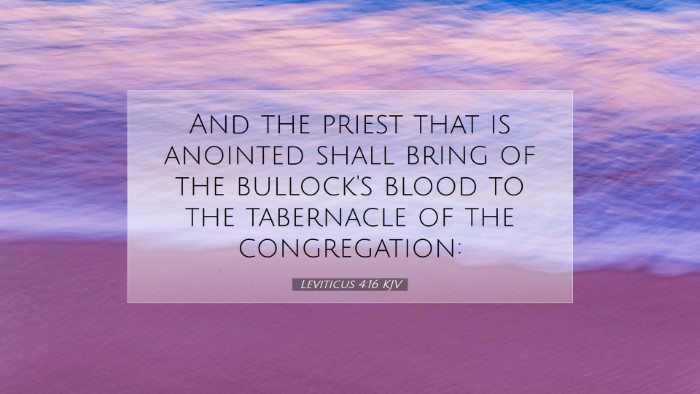Commentary on Leviticus 4:16
Verse Text: "And the anointed priest shall bring of the bullock's blood to the tabernacle of the congregation."
Introduction
The verse from Leviticus 4:16 is situated within the broader context of the sacrificial system instituted in the Mosaic Law. It specifically deals with the provisions for sin offerings, specifically those made by an anointed priest. This commentary aims to provide a deeper understanding of the implications, teachings, and theological nuances found in this verse, drawing from the insights of Matthew Henry, Adam Clarke, and Albert Barnes.
Contextual Understanding
The book of Leviticus, primarily concerned with the laws governing worship and conduct in Israel, contains detailed instructions regarding sacrifices. Chapter 4 addresses sin offerings made for unintentional sins, which necessitate atonement. This passage underscores the gravity of sin and the necessary steps taken to restore relationship between God and man.
Analysis of the Anointed Priest
According to Matthew Henry, the 'anointed priest' represents a mediator, someone who bridges the gap between God and the people. The anointing in this context signifies a divine appointment and empowerment for the priestly ministry. This highlights the importance of the priest's role in the act of atonement, possessing the authority to administer the sacrifices.
Albert Barnes emphasizes that the priest's responsibilities are emblematic of Christ’s ultimate priestly role. The anointed priest serves as a prefiguration of Jesus Christ, who fulfills the sacrificial system through His own blood, offering Himself as the perfect atonement for sin.
The Significance of the Blood
The act of bringing the bullock's blood to the tabernacle is rich with symbolism. Adam Clarke elucidates how blood is a vital element in sacrificial rites, signifying life and the cost of atonement. The reference to the tabernacle indicates the sacred space where God's presence dwells, signifying the seriousness of approaching Him. It acknowledges that sin creates a rift in this relationship, which must be atoned for through the shedding of blood.
Theological Implications
- Sin and Atonement: This verse illustrates the concept of sin requiring a sacrifice for atonement. It invites reflection on the nature of sin and the seriousness with which it is treated in God's sight.
- Role of Mediation: The anointed priest's role demonstrates the importance of mediation in reconciling sinful humanity with a holy God. The anointed mediator points towards Jesus Christ, who is the ultimate mediator for believers.
- Holiness of God: The requirement of a sin offering underlines God's holiness and justice. He cannot overlook sin; it must be addressed properly to maintain His holy nature.
Applications for Today
For pastors and theologians, Leviticus 4:16 can serve as a powerful reminder of the importance of sin and the need for repentance in the life of believers. It enhances the understanding of Christ's passionate sacrifice and motivates a deeper appreciation for His atoning work.
Students of the Bible are encouraged to recognize the continuity between the Old and New Testaments regarding redemption themes and the nature of God’s holiness. This verse invites believers to reflect on their relationship with God and the ongoing need for confession and restoration.
Conclusion
Leviticus 4:16 encapsulates profound truths concerning sin, atonement, and mediation found within the sacrificial system. By exploring the insights of respected commentaries, we gain a richer understanding of how this ancient text relates to both historical and contemporary contexts. The acknowledgment of the 'anointed priest' and the significance of blood as a means of atonement draws a line straight to the heart of the Gospel message — God's desire for reconciliation with humanity through His Son, Jesus Christ.


